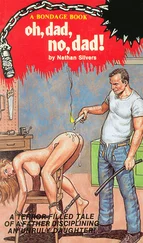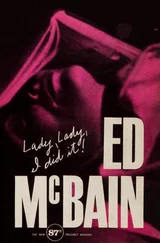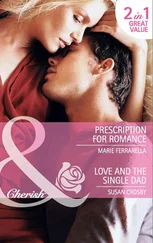“I have to tell you something you may not know, Jamie, despite your vast knowledge of matters musical and orchestral, and that’s if a first chair ever becomes vacant, it’s rare that the second or third chairs are promoted. The conductor usually brings in somebody from outside to fill the spot. Okay? Unfair, but who cares when you’re twenty-three years old, and a first flutist is about to die, and not only are you a remarkable flutician, as your teacher had told you ten thousand times, but you are also young, and fairly attractive, and most important of all — an outsider. The attractiveness, maybe it couldn’t matter less, dollink. The young, yes, it matters. But the outsider , it matters most — provided you’re good in the bargain.
“I get there a little before ten, and the people who are holding the audition include the concertmaster — do you know who the concertmaster is? He’s the first desk in the first fiddle section. First desk, dollink. The same as first chair. Desk, chair, the same thing. Just like in real life, no, dollink? Sit on your desk and start writing on your chair. Anyway. Concertmaster, plus first chair in the oboe section, plus first chair in the bassoon section — this is a woodwind audition, you follow, the flute is what is known as a woodwind instrument, dollink. And also the conductor, who in that year of 1967 happened to be Julius Rudel. There they are, and there I am.
“They ask me to do a little bit of Syrinx — that’s the Debussy piece, which of course I know you’re familiar with, but I thought I’d clarify anyway — and then I thought they’d ask me to do what a flute player might be expected to do at an audition, maybe something from the Bach D Minor, or a little bit of the fourth movement from the Eroica or maybe the Mozart G Major, but this is an opera company orchestra, don’t forget, this is people singing, my dear. So what they ask me to do, and by now I’m beginning to realize that the Debussy was just a warmup, what they now put in front of me is — vot else? — the Mad Scene from Lucia. And when I’m finished fumbling my way through that, they give me something from Daughter of the Regiment and then that old standby, if you’ve been playing opera for fifty years, the prelude to the third act of Carmen, the flute-over-harp section, except there is no harp there at the audition, just frightened little Joanna Berkowitz playing her heart out for a lot of old men who are probably tone deaf.
“I played for — I don’t even remember now — it must’ve been twenty minutes, a half-hour, something like that. This wasn’t steady playing, you understand. I’d do the Mad Scene, and then there’d be a little powwow out there, and then they’d ask me to do the next one, and somebody would bring the music up, this was all sight-reading, you understand, and then there’d be another little powwow and so on. When I finished the bit from Carmen, they thanked me and told me they’d call me in a day or two. There must’ve been another twenty flutists waiting outside when I left, all of them looking desperate.
“But, surprise of all surprises, I did get a call on Friday, and they told me the job was mine and could I start right away with tomorrow’s rehearsal, they’re doing Seraglio, I think it was, and was I familiar with it? I wasn’t familiar with it, I wasn’t familiar with too many operas at the time. In those days, this wasn’t too very long ago, actually, but back then if the musicians were familiar with a score, I mean if they’d been playing it over and over again for years, they might not even bother rehearsing it before the singers came in. Nowadays, the idea is to have at least one rehearsal, even if you know the thing upside down and backward, before your singers start. Anyway, the rehearsal was for two-fifteen that Saturday, and he wanted me there at two, and I said, ‘How much are you paying?’
“Now remember, I’ve been looking for a job with an orchestra for God knows how long, and now I’ve got one, and I want to know how much they’re paying. He explains to me that the orchestra has contracted to play for X numbers of dollars, and the scale for first chair in the flute section is blah, blah, blah — I forget what it was, something like nine thousand dollars, I really don’t remember. But what he neglected to mention was that the first-chair men are usually guaranteed ten percent more than scale — Julie Baker told me this, good old Julie. So I said, ‘Well, that’s fine, but I want fifteen percent over scale, and he said, ‘No, that’s impossible,’ and I said ‘Well, then, make it twelve and I’ll take the job,’ and he gave it to me! Can you imagine such chutzpa? Twenty-three years old, and I get a job with the New York City Opera Orchestra, and I’m haggling over salary! Wow!”
The second of her multiple personalities was Joanna Jewish (originally Joanna Jewess until she informed him, at once and somewhat heatedly, that the word “Jewess” was derogatory), a combination of Henny Youngman and Barbra Streisand being Brooklyn when she wasn’t singing. Joanna told him that there was only one similarity between Streisand and herself, and then turned her face in profile, and said in her Joanna Jewish voice, “The beak, dollink, vot den?” She used this voice and this personality to snap off one-liners and to tell long stories about what had happened to her at rehearsal or while wandering the city (she was a dedicated walker, and spent hours roaming the streets, looking and listening), delivering her shtik with all the elan of a stand-up comic, frequently interrupting herself with bursts of self-appreciative laughter. She suddenly became Joanna Jewish after they had made love the first time — “Well, well, vot haff we here, dollink? Where’d this come from again, all of a sudden, hah?” — but he suspected, and said aloud, that this aspect of her personality was normally reserved for whenever she needed reinforcement from whatever ethnic roots lay deeply buried and half-forgotten in her psyche. “You tink you’re Dr. Mandelbaum maybe?” she said.
Joanna Jewish had never eaten pork in her life; the very thought of it turned her stomach. Joanna Jewish still put newspapers on the wet kitchen floor every Friday night, a Shabbes habit picked up from her mother. She celebrated Chanukah, and not Christmas. She peppered her speech with Yiddish expressions like vontz, which meant bedbug, and which she used to describe the orchestra’s first bassoonist, or aleha ha-shalom, which Jamie gathered meant “rest in peace” and which she used whenever she mentioned her mother, who had died in 1962, shortly after Joanna’s Cleopatra summer. She defined for him the difference between shmuck and putz — “A shmuck is a dope, a putz is what’s sticking up there between your legs again” — and she told him what kvelling meant (“That’s what I did when I told Mandelbaum about you”). But contradictorily, Joanna Jewish considered the state of Israel a foreign country, and whereas she had contributed money to plant trees there, she railed unexpectedly against American Jews who seemed to put the well-being of “the homeland” ( “That’s their homeland? Then what the fuck is this?”) above that of America. “If there were German- Americans who felt about Germany the way some Jews feel about Israel,” she said, “we’d call them subversives and throw them in jail.” Jamie disagreed, but he knew better than to argue with her on her own turf.
Читать дальше












